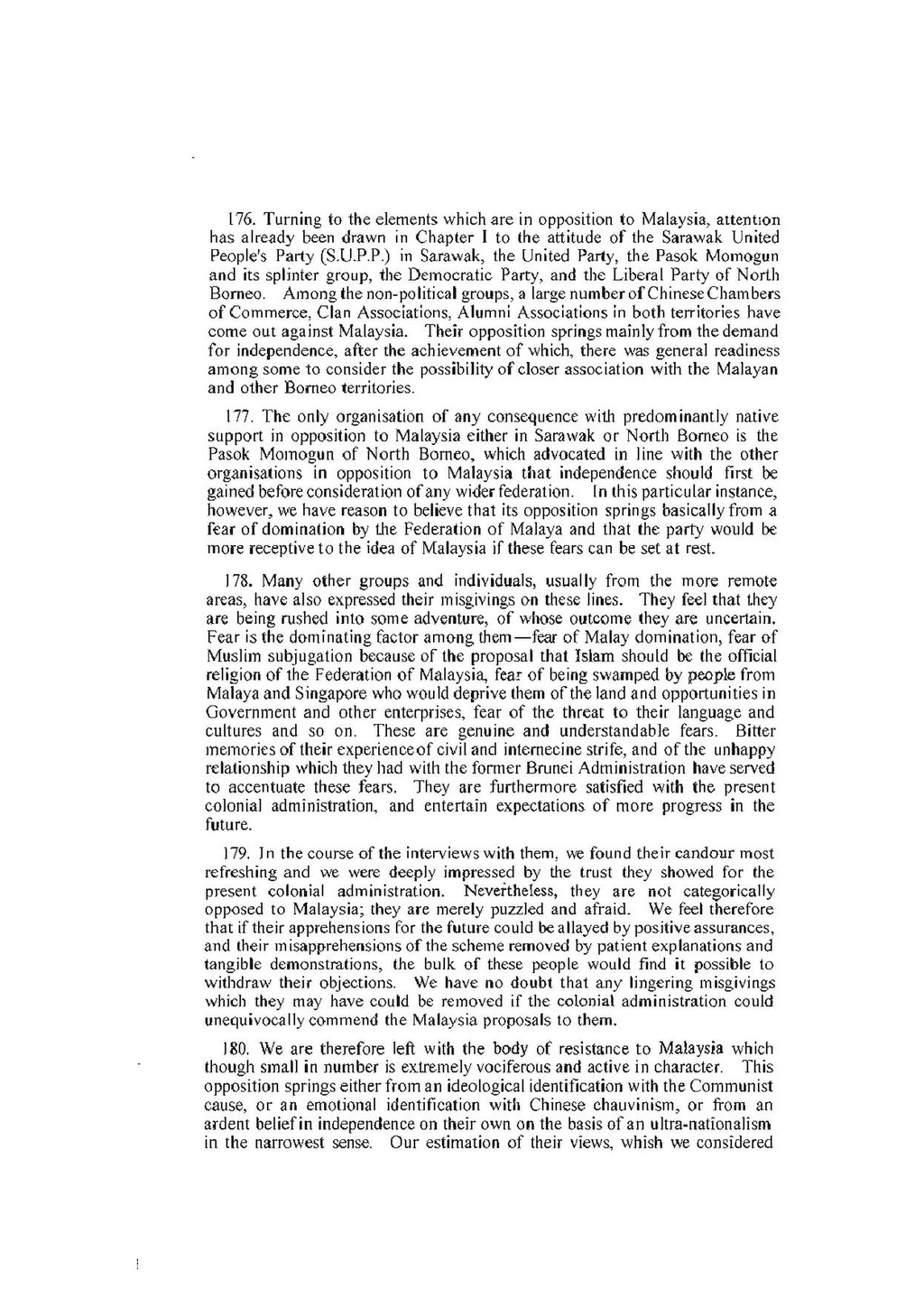176. Turning lo the elements which are in opposition to Malaysia, attention has already been drawn in Chapter I to the attitude of the Sarawak United People's Party (S.U.P.P) in Sarawak, the United Party, the Pasok Momogun and irs splinter group, the Democratic Party, and the Liberal Party of North Borneo. Among the non-political groups, a large numbers of Chinese Chambers of Commerce, Clan Associations, Alumni Associations in both territories have come out against Malaysia. Their opposition springs mainly from the demand for independence. after the achievement of which, there was general readiness among some to consider the possibility ofcloser association with the Malayan and other Borneo territories.
177. The only organisation of any consequence with predominantly native support in opposition to Malaysia either in Sarawak or North Borneo is the Pasok Momogun of North Borneo, which advocated in line with the other organisations in opposition to Malaysia that independence should first be gained before consideration of any wider federation in this particular instance, however, we have reason to believe that its opposition springs basically from a fear of domination by the Federation of Malaya and that the party would be more receptive to the idea of Malaysia if these fears can be set at rest.
178. Many other groups and individuals, usually from the more remote areas, have also expressed their misgivings on these lines. They feel that they are being rushed into some adventure, of whose outcome they are uncenain. Fear is the dominating factor among them —fear of Malay domination, fear of Muslim subjugation because of the proposal that Islam should be the official religion of the Federation of Malays fear of being swamped by people from Malaya and Singapore who would deprive them of the land and opportunities in Government and other enterprises, fear of the threat to their language and cultures and so on These are genuine and understandable fears. Bitter memories of their experience of civil and interncine strife, and of the unhappy relationship which they had with the former Brunei Administration have served to accentuate these fears. They are furthermore satisfied with the present colonial administration. and entertain expectations of more progress in the future.
179. In the course of the intervlews wiih them, we found their candour most refreshing and we were deeply impressed by the trust they showed for the present colonial administration, Nevertheless, they are not categorically opposed to Malaysia; they are merely puzzled and afraid, we feel therefore that it their apprehensions for the future could be allayed by positive assurances. and their misapprehensions of the scheme removed by patient explanations and tangible demonstrations, the bulk or these people would find it possible to withdraw their oiryeoiions. We have no doubt that any lingering misgivings which they may have could be removed if the colonial administration could unequivocally commend the Malaysia proposals to them.
180. We are therefore left with the body of resistance to Malaysia which though small in number is extremely vociferous and active in character. This opposition springs either from an ideological identification with the Communist cause, or an emotional identification with Chinese chauvinism, or from an ardent belief in independence on their own on the basis of an ultra nationalism in the narrowest sense. Our estimation of their views whish we considered
